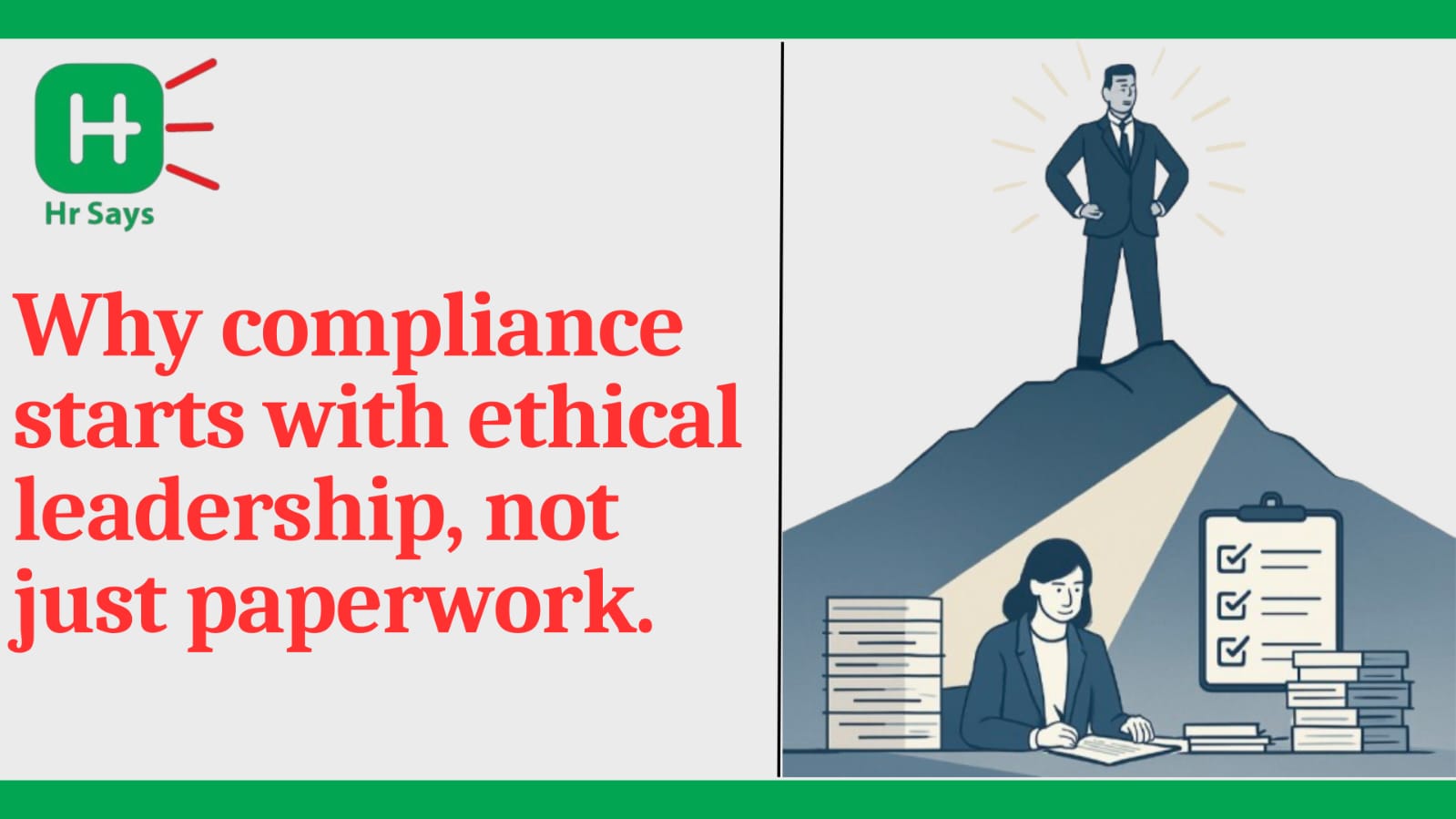The policy was airtight. The documents were signed. The onboarding had a PowerPoint slide dedicated to the code of conduct. And yet, the company landed on the wrong side of a labour tribunal again. Not because HR forgot a clause. Not because the law changed overnight. But because somewhere in the gap between compliance and culture, something quietly rotted.
This is the invisible zone where workplace ethics live or die. HR professionals know it better than anyone: you can have a clear audit trail and still lose in the court of public trust, or worse, in a real court. Because when leadership treats compliance like a checklist, and not a conversation, culture becomes the liability no one accounted for.
The irony is brutal. You can’t submit your culture in a report, but you can absolutely end up defending it in a lawsuit. Workplace ethics, HR compliance, company culture and labor laws are not separate. They are threads in the same legal and emotional fabric. And HR is often the last hand trying to stitch them together, while leadership smiles for the townhall screen.
We’ve reached a point in the future of work where employees expect more than technical compliance. They want ethical consistency. And when the talk doesn’t match the walk i.e. when an employee handbook says zero tolerance, but a high performer bullies with impunity people don’t just leave. Sometimes, they fight. They speak out, go public, or go legal. Because in a culture vacuum, silence gets replaced by systems. And systems don’t forget.
There’s a hidden emotional labour to HR compliance that rarely gets acknowledged. It’s not about citing Section 10(a) or reprinting POSH guidelines. It’s about spotting the quiet eye roll in a meeting where a junior woman gets cut off. It’s about watching an ethics complaint get ‘handled’ with a casual warning because the person involved “brings in the revenue.” It’s about documenting what nobody wants to admit, the culture on paper is often miles away from the culture in practice.
And when leadership believes they’re protected because “HR is taking care of it,” that’s where the cracks deepen. Because HR isn’t a vault of legal immunity. It’s not a replacement for empathy. It’s not a shield you wave to prove your ethics. HR can write policies, design frameworks, and roll out compliance programs. But if the leadership doesn’t embody it and if the culture isn’t lived none of it stands in a crisis. That’s the part no one files but everyone feels.
We’ve seen this play out in courtrooms, in PR disasters, and in viral exposes. The spreadsheet was perfect, but the vibe was toxic. The policy was clear, but the predator got promoted. The compliance training had 97% completion, but the culture had 0% courage. These are not HR failures. These are failures of ethical leadership masquerading as procedural success.
Workplace ethics are not a formality. They’re a heartbeat. And when it stops, the consequences are rarely administrative. They’re reputational. Legal. Financial. And human.
HR compliance must start from the top, not flow from the middle. Leaders can’t delegate decency. They can’t outsource integrity to a department and expect immunity. Culture is not a deck; it’s a decision. Repeated. Visible. Uncomfortable, sometimes. But always essential.
The uncomfortable truth is that many companies comply to avoid penalties, not to uphold principles. They follow the letter, not the spirit. And that gap between legality and morality is where trust disappears. Especially in today’s workforce, where Gen Z and millennials are no longer impressed by rules. They expect values. They expect consistency. They expect a company to mean what it says, not just file it in a folder.
So when HR raises a red flag, it’s not just about risk. It’s a mirror. Ignoring it because “there’s no lawsuit yet” is like ignoring a fever because the diagnosis isn’t confirmed. It’s short sighted. And in many ways, unethical. This is why culture has to be co owned, not dumped on HR. Compliance is not just about labour laws; it’s about labour dignity. And culture is its most powerful and fragile carrier.
If a company wants to future proof itself, it won’t do it through another compliance module. It will do it by building a culture where ethics are lived, not laminated. Where leadership owns its blind spots. Where HR isn’t treated like the clean up crew, but the compass. You can’t file that. But you can lose everything without it.

 If a company wants to future proof itself, it won’t do it through another compliance module. It will do it by building a culture where ethics are lived, not laminated
If a company wants to future proof itself, it won’t do it through another compliance module. It will do it by building a culture where ethics are lived, not laminated








.jpeg)
.jpeg)

.jpeg)





.jpeg)



.jpeg)

.jpeg)



